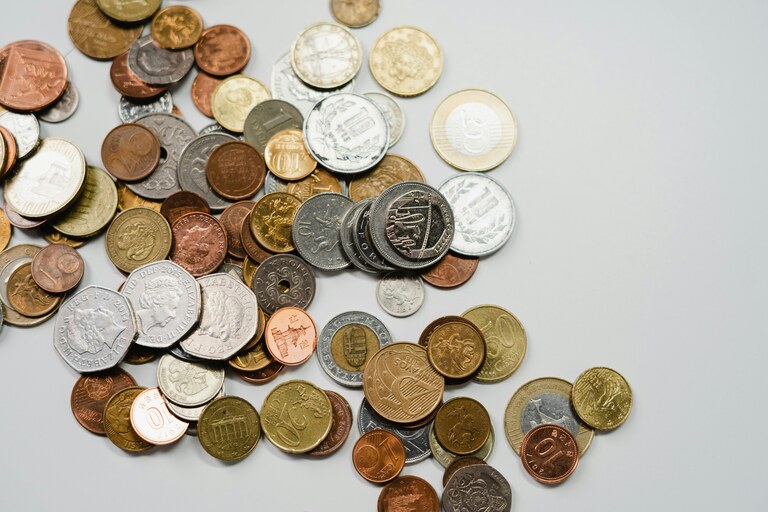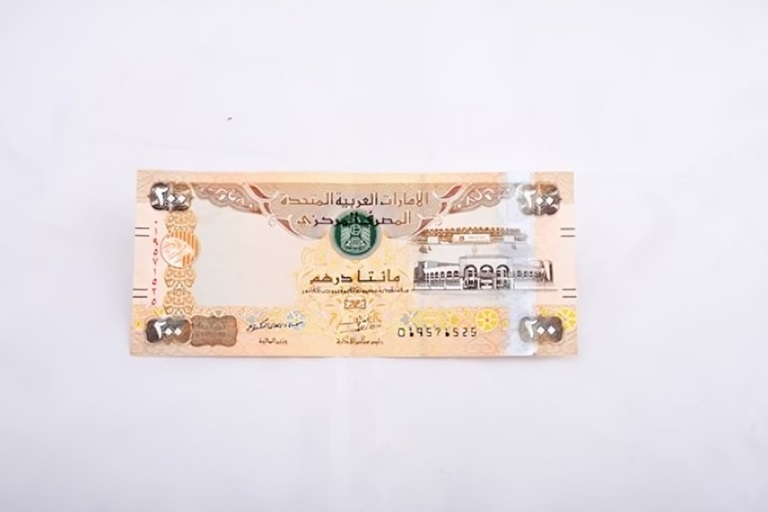
How to Mitigate Risks in the Foreign Exchange Market
Table of contents
When preparing for an international trip, most travellers focus on finding the best deals for flights, accommodations, and sightseeing experiences. However, one crucial aspect that is often overlooked is navigating the foreign exchange market. Currency exchange can significantly impact your travel budget, especially when dealing with fluctuating exchange rates, hidden fees, and market volatility.
Understanding the types of foreign exchange risks and learning how to mitigate them is essential for protecting your finances while traveling.
In this blog, we’ll explore the foreign exchange market from the traveller’s perspective, identify the most common risks you might encounter, and share tips on how to manage them effectively.
Understanding the Foreign Exchange Market for Travelers
The foreign exchange (FX) market is the global marketplace where currencies are traded. It determines the value of one currency relative to another, and its fluctuating nature can affect the cost of everything from your morning coffee in Paris to your evening meal in Tokyo. As a traveller, you are a participant in the foreign exchange market every time you exchange money, whether at a bank, an airport kiosk, or through an online service.
However, the value of currencies fluctuates due to a wide range of economic factors, including interest rates, inflation, and political stability. This means the rate at which you exchange your money can vary depending on when and where you make the transaction. Understanding these fluctuations and the risks associated with them is crucial for any traveler.
Types of Foreign Exchange Risks for Travelers
There are three primary types of risks in the foreign exchange market that travellers need to be aware of:
1. Exchange Rate Risk
Exchange rate risk, also known as currency risk, arises from changes in the value of one currency relative to another. For example, if you are planning a trip to Japan from the United States, the USD/JPY exchange rate will determine how much Japanese yen you receive for your U.S. dollars. However, if the yen strengthens against the dollar between the time you book your trip and the time you exchange your money, you will end up with fewer yen, potentially impacting your spending power.
As a traveller, exchange rate risk is unavoidable, but it can be mitigated by staying informed about currency trends. Monitoring exchange rates leading up to your trip can help you decide when it’s best to exchange your money. Some travellers even use tools like limit orders or currency apps that notify them when the exchange rate hits their desired level.
2. Transaction Risk
Transaction risk occurs when there is a delay between agreeing on an exchange rate and completing the transaction. This is particularly relevant for travellers who book international services (such as tours, accommodations, or car rentals) in a foreign currency. For instance, if you book a hotel in Europe months in advance, the actual amount you end up paying in your local currency could differ by the time the payment is processed due to fluctuations in the exchange rate.
To mitigate transaction risk, consider locking in exchange rates for pre-paid services wherever possible. Many travel companies and online platforms allow you to pay in your local currency at the time of booking, which can protect you from future rate changes. If this option is unavailable, using a travel-friendly credit card with low or no foreign transaction fees can also reduce the impact of fluctuating exchange rates when settling payments abroad.
3. Economic Risk
Economic risk, also known as country risk, refers to the potential for a country’s economic conditions to affect the value of its currency. This can include factors such as political instability, inflation, and changes in government policy. For instance, a country experiencing political unrest may see its currency weaken, making it more expensive for travellers holding a stronger currency to visit.
To protect yourself from economic risk, it’s important to stay informed about the countries you plan to visit. Keep an eye on news related to economic conditions and political developments, as these can have a direct impact on exchange rates. Diversifying your travel destinations or currencies can also help mitigate economic risk. For example, if you’re travelling across Europe, consider exchanging your money into euros for multiple countries rather than converting to a different currency at each stop.
Practical Tips for Mitigating Foreign Exchange Risks While Traveling
Now that we’ve covered the types of foreign exchange risks, let’s look at some practical strategies to mitigate these risks and make the most of your travel budget.
Monitor Exchange Rates Before Your Trip
One of the easiest ways to reduce the impact of exchange rate fluctuations is by monitoring the currency market before your trip. Currency exchange websites and mobile apps provide real-time exchange rate data and allow you to track trends over time. If you notice that the exchange rate is particularly favourable, consider exchanging a portion of your money in advance to lock in a good rate.
Use Currency Exchange Services Wisely
Not all currency exchange services are created equal. While it may be convenient to exchange money at the airport, these kiosks often offer less favourable rates and charge higher fees than banks or online services. To get the best deal, consider exchanging money at a reputable bank, credit union, or online platform before you leave. Alternatively, using an ATM at your destination can provide competitive rates, but be sure to check with your bank about any foreign ATM fees beforehand.
Leverage Prepaid Travel Cards
Prepaid travel cards are an excellent tool for mitigating foreign exchange risks. These cards allow you to load money in different currencies and lock in exchange rates at the time of loading. By doing so, you can avoid the uncertainty of fluctuating rates during your trip. Additionally, prepaid cards offer the convenience of using local currency without the need to carry large amounts of cash.
Consider Travel-Friendly Credit Cards
Some credit cards are designed specifically for international travellers, offering perks such as no foreign transaction fees, travel insurance, and even the ability to earn points on your purchases abroad. Using a travel-friendly credit card can help you avoid hidden fees and provide a buffer against exchange rate fluctuations. Just be sure to check the fine print on exchange rates and any additional charges that may apply when using the card overseas.
Diversify Your Currency Portfolio
If you’re travelling to multiple countries, it can be advantageous to diversify your currency holdings. For instance, if you’re visiting both the United Kingdom and the European Union, consider holding both British pounds and euros. This way, you can avoid the cost of converting between currencies multiple times, and you’ll be better positioned to take advantage of favourable exchange rates in either currency.
Plan for Currency Fluctuations in Your Budget
When budgeting for your trip, it’s important to factor in potential changes in exchange rates. A 5% swing in the exchange rate can make a significant difference in the cost of your trip, especially if you’re travelling for an extended period. To account for this, build a cushion into your travel budget and be prepared to adjust your spending if the currency market shifts in an unfavourable direction.
The Role of Forex Service Providers in Mitigating Foreign Exchange Risks
When it comes to mitigating foreign exchange risks, forex service providers like Thomas Cook play a pivotal role in offering solutions tailored to travellers. These providers offer a range of services that help travellers manage currency fluctuations, reduce fees, and make the most of their travel funds.
Unlike traditional banks, which may impose high fees and less favourable rates, forex service providers specialize in currency exchange and are equipped to offer better deals and more flexibility to their customers.
Competitive Exchange Rates
Forex service providers offer competitive exchange rates compared to traditional methods like banks or airport kiosks. Many of these providers operate with lower overhead costs, allowing them to pass on better rates to customers. By offering near real-time exchange rates, travellers can often secure a more favourable deal compared to using a credit card or exchanging money at an airport, where the rates are typically skewed in favour of the provider.
Minimized Transaction Fees
Another advantage of using specialized forex service providers is the reduction or elimination of transaction fees. Many of these companies are designed with international travellers in mind, and as a result, they often offer fee-free transactions or significantly lower fees than traditional financial institutions. This can be a game-changer for travellers who need to make multiple currency exchanges or large international payments. By avoiding unnecessary fees, travellers can ensure that more of their money goes toward their trip rather than getting eaten up by service charges.
Hedging Against Exchange Rate Fluctuations
Some forex service providers offer the option to hedge against exchange rate fluctuations by locking in rates in advance. This is particularly beneficial for travellers who want to secure a favourable rate before embarking on their journey. Prepaid travel cards or accounts with locked-in exchange rates allow travellers to avoid the uncertainty of volatile currency markets. Providers allow travellers to load multiple currencies on their cards, ensuring that they’re protected from any adverse currency movements.
Convenient and Flexible Currency Solutions
In addition to favourable rates and reduced fees, forex service providers often offer innovative products such as multi-currency accounts or prepaid cards that hold multiple foreign currencies. These solutions provide travellers with the flexibility to switch between currencies effortlessly, whether they’re in Europe, Asia, or South America. Some providers also offer travel insurance, ATM access, and contactless payment options, making it easier to manage funds and mitigate risks while abroad.
The Impact of Currency Fluctuations on Travel Costs
Currency fluctuations can have a profound impact on the overall cost of your trip, sometimes altering your travel budget in ways you didn’t anticipate. Whether you’re planning a long vacation or a short weekend getaway, a swing in the exchange rate can make everyday expenses like dining out, shopping, and local transportation more expensive. For instance, if the currency of the country you’re visiting appreciates against your home currency, your money will not stretch as far as you initially expected, leading to higher costs for accommodations, meals, and even souvenirs.
One common issue travellers face is the lag between booking travel arrangements and paying for them. You may book a flight or hotel months in advance, only to find that currency fluctuations have made the final payment more expensive when it’s time to settle the bill. This unpredictability is one of the reasons why being aware of foreign exchange risks is crucial for travellers.
Additionally, local inflation can play a role. If inflation rises in the country you are visiting, prices for goods and services will also increase. If the local currency strengthens at the same time, you could face a double impact—higher costs due to inflation, compounded by an unfavourable exchange rate. Therefore, it’s wise to build a buffer into your travel budget to accommodate potential currency fluctuations.
By monitoring exchange rates closely and using tools such as prepaid travel cards, travellers can mitigate the impact of these fluctuations. Another effective approach is to convert some of your travel funds into the local currency ahead of time when the rates are favourable, ensuring that you’re not entirely at the mercy of market movements during your trip.
Stay Ahead of Foreign Exchange Risks
Mitigating risks in the foreign exchange market is a crucial part of smart travel planning. By understanding the types of foreign exchange risks—including exchange rate risk, transaction risk, and economic risk—you can take proactive steps to protect your finances.
Whether you’re monitoring exchange rates, using prepaid travel cards, or diversifying your currency holdings, these strategies will help you get the most value out of your money while exploring the world.
Travelling should be about enjoying new experiences, not worrying about the impact of currency fluctuations. By staying informed and prepared, you can navigate the foreign exchange market with confidence and make the most of your adventure.
Table of contents
Our Forex Offerings
Trending blogs for you
 18002099100
18002099100




















